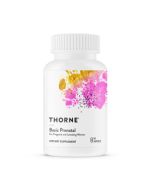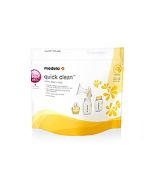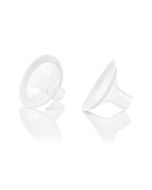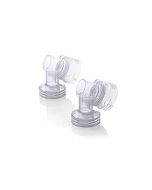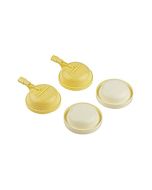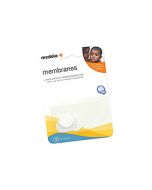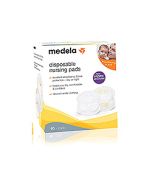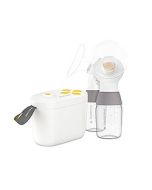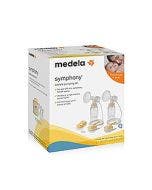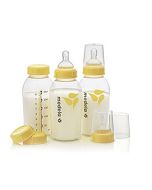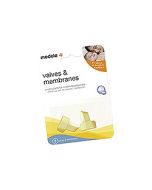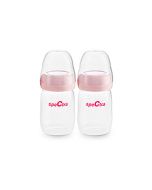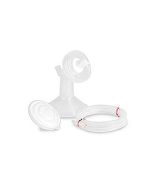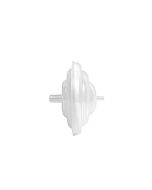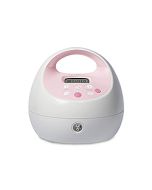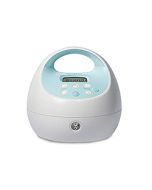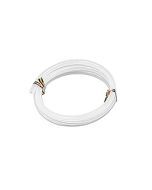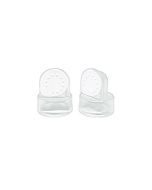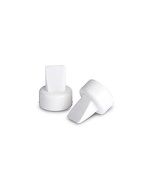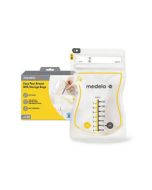Breastfeeding and Pumping: Benefits and Tips for You and Your Baby
- Feb 1, 2024

Breastfeeding is a natural and beneficial practice that not only provides essential nutrients to your baby but also offers numerous health benefits for you. As you embark on this journey, it's crucial to understand the importance of breastfeeding for the well-being of both you and your baby, as well as the safety measures to ensure a healthy breastfeeding experience.
Health Benefits for You
For mothers, breastfeeding offers a multitude of health advantages. Breastfeeding can aid in postpartum weight loss by burning extra calories and contracting the uterus back to its pre-pregnancy size. Additionally, breastfeeding reduces the risk of breast and ovarian cancers, as well as osteoporosis later in life.
Furthermore, breastfeeding stimulates the release of oxytocin, a hormone that helps the uterus return to its normal size and reduces postpartum bleeding. The emotional bond formed during breastfeeding can also contribute to maternal well-being by reducing stress levels and promoting feelings of closeness and relaxation with your baby.
Health Benefits for Your Baby
Breast milk is uniquely tailored to meet the nutritional needs of infants, providing essential vitamins, minerals, and antibodies, supporting their growth and development. The Centers for Disease Control and Prevention (CDC) emphasizes that breastfed babies have lower risks of developing asthma, obesity, type 2 diabetes, ear infections, and certain respiratory infections compared to formula-fed infants.
Additionally, the antibodies present in breast milk help protect babies from infections and illnesses, providing them with a strong immune system during their early months of life. Breastfeeding is also associated with lower rates of sudden infant death syndrome (SIDS).
Safety Measures for Breastfeeding
While breastfeeding is a natural process, it is essential to follow safety guidelines to ensure the well-being of you and your baby. Several key safety measures to promote a healthy breastfeeding experience:
- Proper Latching: Ensuring your baby latches onto your breast correctly can prevent nipple soreness and discomfort. Seek assistance from a lactation consultant or healthcare provider if you encounter difficulties with latching.
- Hygiene: Maintain good hygiene by washing your hands before breastfeeding to prevent the spread of germs to your baby. Keep your breast and nipple area clean and dry to reduce the risk of infections.
- Nutrition: Eat a balanced diet rich in fruits, vegetables, lean proteins, and whole grains to ensure that you are providing adequate nutrients to support breastfeeding. Stay hydrated by drinking plenty of water throughout the day.
- Medication: Consult with your healthcare provider before taking any medications while breastfeeding to ensure their safety for you and your baby. Certain medications can pass through breast milk and may affect your infant.


- Avoiding Alcohol and Tobacco: Limit or avoid alcohol consumption while breastfeeding, as it can pass through breast milk to your baby. Similarly, refrain from smoking or exposing your baby to secondhand smoke, as it can increase the risk of respiratory illnesses.
- Breast Pump Safety: If you are using a breast pump, ensure that it is clean and properly sterilized before each use to prevent contamination. Follow the manufacturer's instructions for maintenance and cleaning.
By following these safety measures and embracing the numerous health benefits of breastfeeding, you can ensure a positive and fulfilling experience for both you and your baby. Remember to seek support from healthcare professionals, lactation consultants, and support groups if you encounter any challenges along the way. Your commitment to breastfeeding plays a vital role in promoting the health and well-being of your baby, laying the foundation for a lifetime of good health.
*This article is intended for informational purposes only and should not be substituted for medical advice. For medical questions and advice, it is always best to consult with your trained physician.
Sources:
Centers for Disease Control and Prevention. (2021, November 19). Breastfeeding. Centers for Disease Control and Prevention. https://www.cdc.gov/breastfeeding/index.htm
Dieterich, C. M., Felice, J. P., O’Sullivan, E., & Rasmussen, K. M. (2013, February). Breastfeeding and health outcomes for the mother-infant dyad. Pediatric clinics of North America. https://www.ncbi.nlm.nih.gov/pmc/articles/PMC3508512/
Making the decision to Breastfeed. Making the decision to breastfeed | Office on Women’s Health. (n.d.). https://www.womenshealth.gov/breastfeeding/making-decision-breastfeed#1
Mayo Foundation for Medical Education and Research. (2022, August 24). Do you know which medications are safe to take while breastfeeding?. Mayo Clinic. https://www.mayoclinic.org/healthy-lifestyle/infant-and-toddler-health/in-depth/breastfeeding-and-medications/art-20043975





